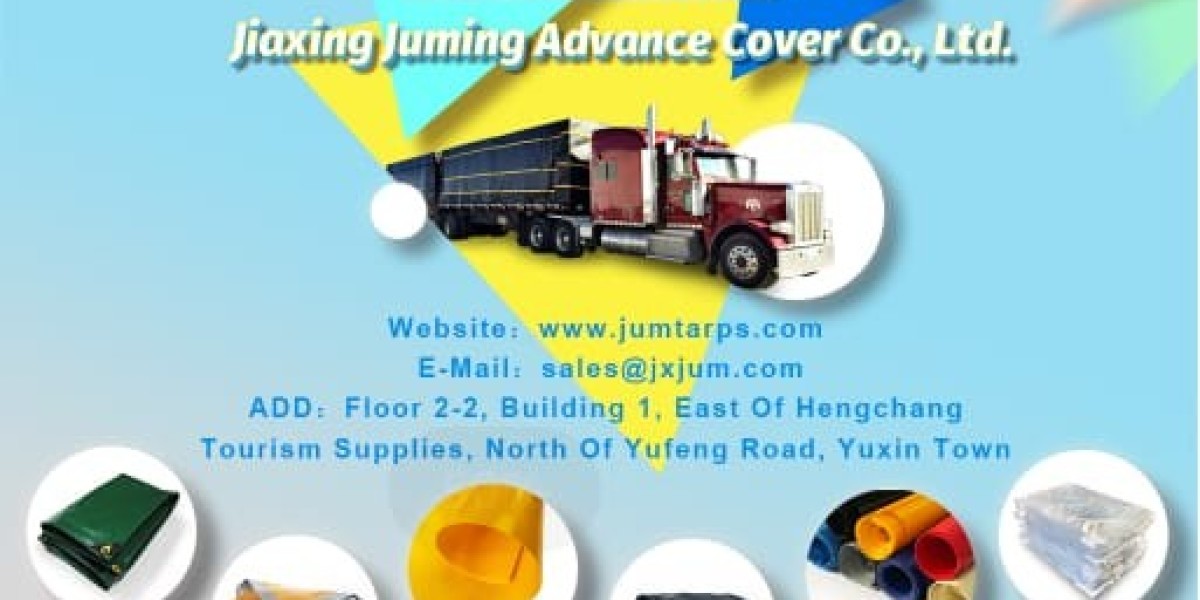A PVC tarp is one of the most versatile and reliable protective materials used across a wide range of industries. Known for its durability, flexibility, and resistance to harsh environmental conditions, a PVC tarp offers dependable coverage and long-lasting performance in situations where protection is essential. Made from polyvinyl chloride combined with a strong polyester fabric base, PVC tarps are engineered to withstand demanding usage, making them a preferred choice for construction companies, transportation services, agricultural operations, event organizers, and many other sectors that rely on high-quality protective coverings.
What sets a PVC tarp apart from other materials is its exceptional strength and resilience. The combination of PVC coating and a woven polyester core creates a tough, tear-resistant fabric that can handle heavy loads, rough handling, and continuous exposure to sunlight, rain, wind, and chemicals. This makes PVC tarps ideal for outdoor applications where weather resistance is a top priority. Whether used as a truck cover, equipment protection, temporary roofing, or industrial curtain, a PVC tarp provides a dependable solution in environments where lighter materials might fail.
The waterproof nature of PVC tarps is another major advantage. The PVC coating forms a sealed barrier that prevents water from penetrating the fabric, ensuring the items beneath remain dry even during heavy rainfall. This feature is especially important in agriculture, transportation, and construction, where moisture protection can directly impact productivity and material preservation. Farmers rely on PVC tarps to protect harvested crops, silage, and hay, while construction sites use them to shield building materials and work areas from unpredictable weather conditions.
PVC tarps also offer impressive UV resistance. Continuous exposure to sunlight can degrade many materials, causing them to fade, weaken, or become brittle over time. However, PVC tarps are treated with additives that help them resist UV radiation, making them suitable for long-term outdoor use without losing their structural integrity. This UV stability ensures that the tarp maintains its flexibility, color, and strength, even in regions with intense sunlight.
Versatility is another hallmark of PVC tarps. They are available in a variety of thicknesses, weights, and colors, allowing users to select the exact type that matches their needs. Thicker PVC tarps are ideal for heavy-duty industrial applications, while lighter options work well for general coverage, temporary shelters, and recreational use. The ability to choose from different finishes and properties—such as fire-retardant, anti-static, anti-fungal, or cold-resistant tarps—further enhances their adaptability across sectors.
Ease of cleaning and maintenance makes PVC tarps practical for repeated use. Their smooth, coated surface does not easily absorb dirt, making them simple to wash and reuse. This low-maintenance characteristic contributes to their cost-effectiveness, as they can last for years with proper care. Additionally, PVC tarps can be welded, stitched, or fitted with reinforced edges and metal grommets, giving users a variety of installation and fastening options.
In transportation, PVC tarps are commonly used as truck and trailer covers. They protect cargo from weather exposure and help prevent damage during transit, which is critical for logistics companies that must deliver goods safely and on time. Marine industries also benefit from PVC tarps, using them for boat covers, dockside protection, and waterproof enclosures. These applications require materials that can resist saltwater, abrasion, and constant movement—conditions that PVC tarps are well equipped to handle.
Event and recreational uses further highlight the adaptability of PVC tarps. They are frequently used to create tents, shade structures, canopies, and inflatables for outdoor events, festivals, and sports activities. Their flexibility and strength make them suitable for shaping and forming various structures, while their weather resistance ensures the safety and comfort of participants.
In emergency situations, are indispensable. They serve as temporary shelters, makeshift roofs, ground covers, and protective barriers during natural disasters, humanitarian missions, and rescue operations. Their quick deployment and durability help agencies respond efficiently in critical moments.
From an environmental perspective, PVC tarps can be produced using formulations designed to reduce environmental impact. Manufacturers often incorporate eco-friendly additives, enhance energy-efficient production processes, and promote recycling initiatives to extend the life cycle of PVC materials. The long lifespan of a PVC tarp itself helps reduce waste, as it does not need frequent replacement compared to less durable alternatives.
In essence, a PVC tarp is a dependable, multifunctional material designed to deliver protection, durability, and flexibility across countless applications. Its combination of strength, weather resistance, and longevity makes it an essential tool for anyone needing reliable coverage in challenging conditions. Whether used for industrial, commercial, agricultural, recreational, or emergency purposes, a PVC tarp provides a practical and effective solution that stands up to the demands of daily use.






